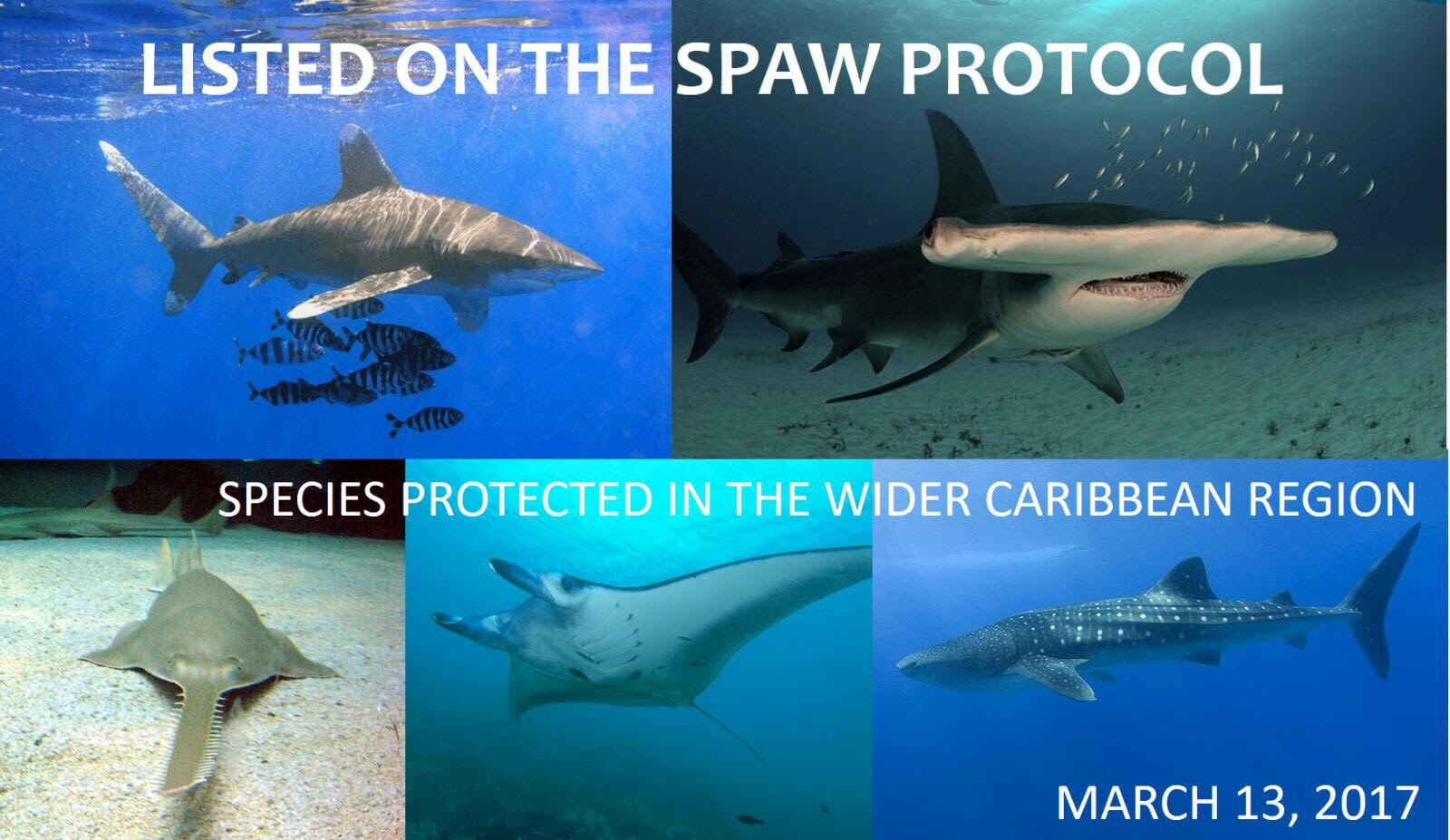
Great news for shark conservation in the Caribbean. Today it was officially decided to protect eight shark species under the international Specially Protected Areas and Wildlife (SPAW) Protocol following a proposal by the Dutch Ministry of Economic Affairs in cooperation with a team of shark experts. The SPAW protocol is the only cross-border legislative instrument for nature conservation in the Wider Caribbean Region.
Political representatives of 14 Caribbean countries (the Netherlands represents the Caribbean islands Saba, St. Eustatius and Bonaire) came together in Cayenne, French Guiana to vote which species would officially be added to the SPAW protocol. Through the SPAW protocol, which is a United Nations initiative, the signatory countries set agreements to protect vulnerable animals and their unique habitats. The agreements concern trade and fisheries, as well as tourism and coastal development. Until now, no sharks or rays were included in the protocol, despite being an especially threatened animal group, both on a global scale and in the Caribbean region. The main threats to shark populations are overfishing and destruction of vital habitats such as coral reefs and mangroves.
“We are delighted that our proposal got such broad support from the present countries,” says Guus Schutjes of the Dutch Ministry of Economic Affairs. “The Netherlands has strived for the structural protection of nature and biodiversity in the Caribbean for some time now and cross-border protection is an essential part of this.”
Threatened species
The Ministry of Economic Affairs proposed a shortlist of eight shark species for listing on the protocol. This included three species of Hammerhead shark, the Whale shark, the Oceanic Whitetip shark, the sawfish (of which few people know it is a shark), and two manta ray species. All of these species are Caribbean natives and threatened by human interference. Protection is needed to ensure the species are safeguarded for the future. In November 2016, the proposals of all eight species were accepted during a technical meeting in Miami. Today’s vote was the final step towards legal protection.
Irene Kingma, director of the Dutch Elasmobranch Society (DES) and one of the shark experts that helped with the shortlist: “Sharks do not respect borders and cover enormous distances, which is why it is important to protect them on a region-wide scale. The proposals from the Dutch Ministry have helped providing these fragile species with the protection they deserve, which we consider a great success.”
Tadzio Bervoets, chair of the Dutch Caribbean Nature Alliance and leader of the Save Our Sharks project: “The Dutch Caribbean Nature Alliance and its partners have been working hard in the Dutch Caribbean region and in the Caribbean in general to increase protection for sharks. Through the funding provided to us by the National Postcode Lottery we have been doing scientific research, education and outreach and in this case significant lobbying work, and we are encouraged by this excellent development coming out of French Guiana. Sharks are critical to the Caribbean region and their conservation is essential to the health of our Caribbean Sea. With this historic vote, shark conservation efforts have been significantly increased in the region and we are elated to have been a part of the process. We hope that more species will soon be added to the annexes of the SPAW Protocol giving them the conservation status that they need in the Caribbean Sea.”






